Fejos Postdoctoral Fellow: Mikhail Bashkirov
In the summer of 2019, my co-author Beata Bubenets (Bashkirova) and I started shooting a documentary about the Siberian shaman Gabyshev, who walked from Siberia to Moscow. This journey had a definite goal. Considering Vladimir Putin a demon, the shaman was going to exorcise him from the Kremlin after reaching Moscow. He quickly became a media and social network celebrity. Supporters were ready to march with him all the way to Moscow. Initially, we thought we would be making a road movie. But a few weeks into the project, the shaman was arrested by special forces and taken to the city of Yakutsk in northeastern Siberia, the place from where he had started. For several months, he was under house arrest. We managed to capture this period of his life on camera. In the process of filming, we had to face threats from the political police of Putin’s regime. And the shaman himself was soon detained again by the police and sent for compulsory treatment to a psychiatric clinic in Vladivostok, the farthest removed Russian city from Moscow. We have every reason to believe that the methods of punitive psychiatry, a practice notorious since Soviet times, are being applied to shaman Gabyshev. As of today, he is still in a psychiatric clinic.
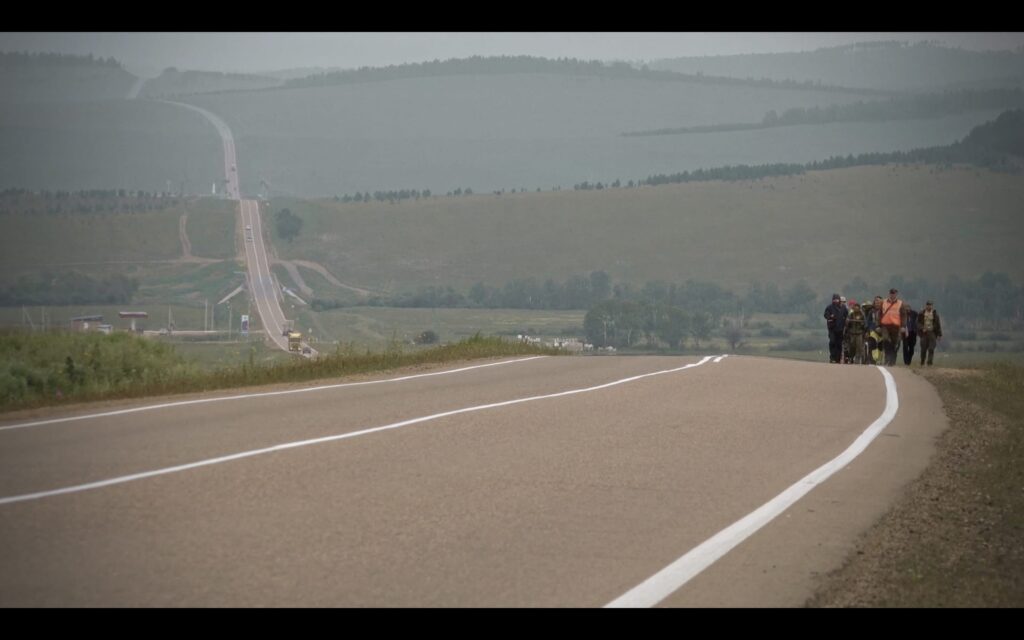
We observed the main character of the film from the “closest possible distance”. This means, we abstained from preparing character for filming, aiming instead to capture the action of the here and now. This is a method that was developed by Marina Razbezhkina, the founder of an independent school of documentary filmmaking. Her approach is often compared to the concept of the French “cinéma vérité”. In our film, there are no interviews, only impromptu monologues uttered by the characters. This method of filming also excludes any artificially constructed or manipulated scenes. Although the main character of the film becomes accustomed to the constant presence of the camera in his life, he certainly never forgets about it.
The story of the shaman Gabyshev turned out to be very difficult material to interpret. Social, political, religious and ethnic motives are intertwined in it. Alexander Gabyshev considered himself not just a shaman, but a ” shaman warrior”. He also considered himself a double believer: elements of paganism and Christianity are intertwined in his way of knowing. Gabyshev’s synthetic vision of the world paradoxically combines elements of Yakut pagan culture and Orthodox Christianity. In many ways, Gabyshev borrows the behavioral model characteristic of the Orthodox tradition of becoming a fool for Christ. He builds his behavior and identity on a series of paradoxes and contradictions that seem illogical and nonsensical in the context of the shamanic tradition. Gabyshev’s image, replicated in a multitude of media and social networks, has generated a great deal of controversy. The use of mass-media optics and the polarity of social media audience ratings have led to the formation of numerous stereotypes, ranging from “city madman” and “psychopath” to “honest Siberian man” and “new Rasputin”. For us, these stereotypes add little to an investigation of the main character’s personality. Instead, we expanded our theoretical framework to include anthropological insights on shamanism and Orthodoxy, which resulted in the research article Gabyshev: identity at the intersection of two cultures.
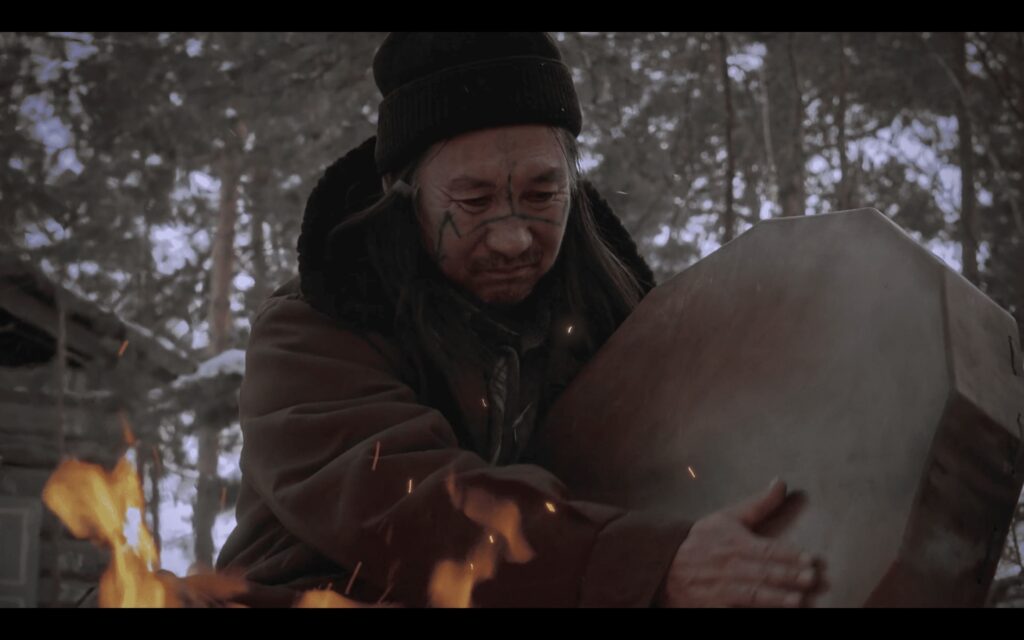
Following the beginning of the Russian military aggression against Ukraine, we were forced to leave Russia. Threats against our personal safety had grown significantly. We emigrated to France, where, together with our partners, Les steppes production company, we continued working on the film. Our Russian producer Vladislav Ketkovich also left Russia for France with us. During the Wenner Gren Foundation fellowship in 2023, we actively began editing the film, which was perhaps the most difficult part of the work in this project. Our task was to place the story of the shaman Gabyshev in the complex socio-political context of recent events associated with the brutalization of the regime and the Russian invasion of Ukraine. At the same time, we wanted to avoid the film becoming a political pamphlet and maintain the archetypal nature of the story.
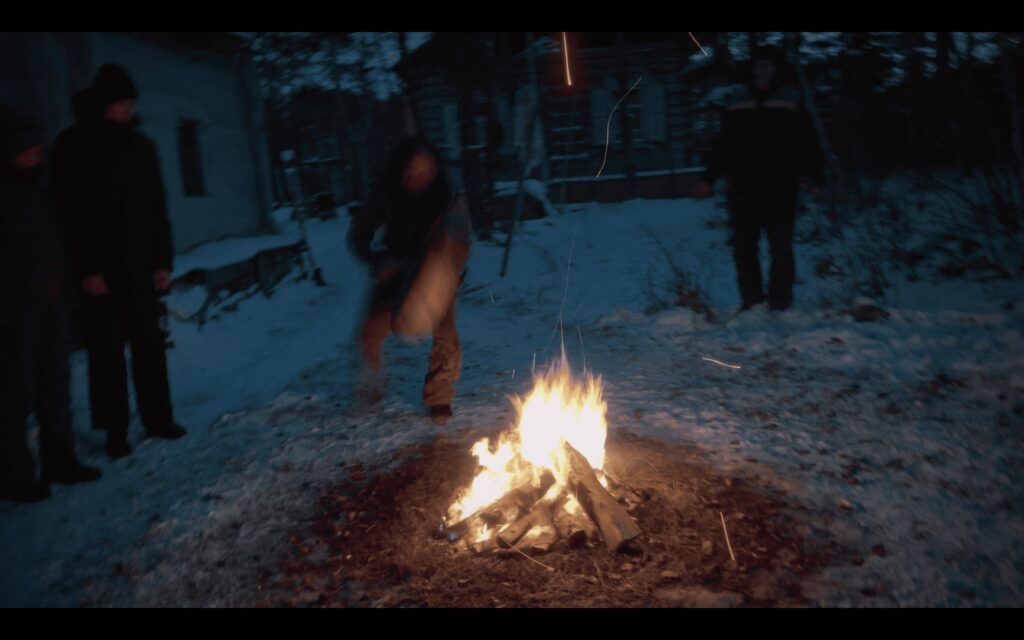
In the making of the film, we had at our disposal our own footage of over 300 hours of material, as well as numerous Youtube videos. We also made the important decision to include footage we had shot at Theater.doc in Moscow in the fall of 2020. At the independent documentary theater in Moscow, we had succeeded in making a performance about the history of shaman Gabyshev. However, we were only able to show it twice because of pressure from the police and pro-Kremlin provocateurs. The theater performance was styled in the esthetic of the square puppet theater, which would become an important element in the film. The role of the shaman was played by an actor who also was subjected to punitive psychiatry as a dissident in the Soviet period. Additionally, our fixer was able to travel to Vladivostok (the region where the shaman is imprisoned), bringing back unique video material. One of our initial ideas had been to use a voice-over to provide another opportunity for narrative. But very quickly we abandoned this idea. It was important for us that the central character of the film retain his authentic voice, and that outside hypotheses and interpretations would not dominate his story or his fate. The observational method, in our opinion, was and remains the most adequate instrument in this endeavour. We also made a fundamental decision relating to the title – A shaman’s tale is the story of a person in time, told by the shaman himself.
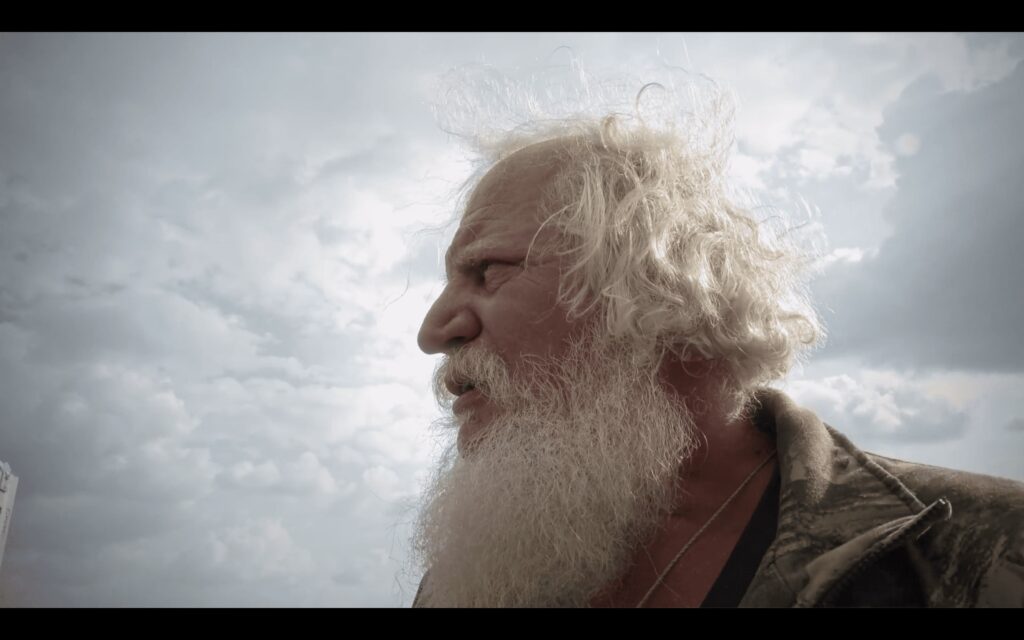
An important step in the film’s completion was our collaboration with Czech company Hypermarket Film. Working in their Prague studio allowed us to make several important decisions about the film’s post-production. In the end, the shaman’s own music (including his singing and tambourine play) became the foundation for the soundtrack. We believe, this artistic decision allowed us to convey the authentic character of the story and life world of the subject. Another important decision for the film was color correction. The journey of the shaman from Yakutsk to Moscow in the summer and autumn of 2019 is delicately stylized in celluloid retro-imagery. This is due to the fact that today, after the outbreak of war and the hardening of the political regime in Russia, events such as the shaman’s trek have become absolutely impossible. Within a few months, Russia transformed into a different country, and the authoritarian regime became a totalitarian one.
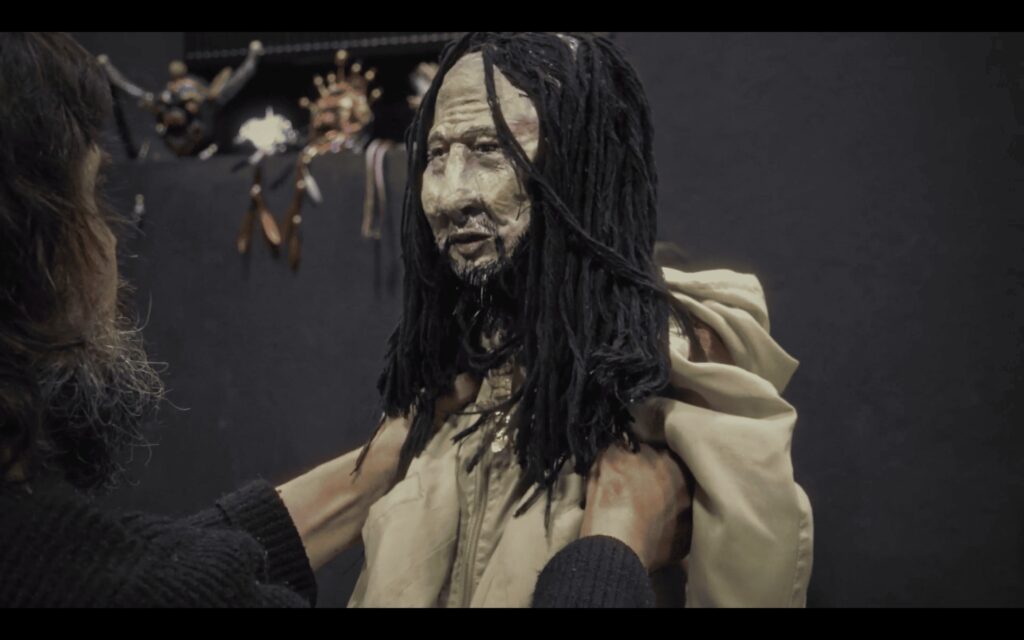
Currently, we are dealing with the challenge of distributing the film. We are somewhat concerned about attempts of some filmmakers from Ukraine to cancel “Russian culture” in the field of cinema, including independent and oppositional films. Resulting from the work of Ukrainian activists, many cultural institutions in Europe are in fear of scandals and prefer not to contact films and authors even remotely connected with Russia. We consider this position to be limited and dangerous from a censorship point of view. An important event for us is the upcoming world premiere of the film in Prague on March 27 at the One World festival dedicated to the protection of human rights. We hope the premiere will help the film’s distribution and participation in other documentary film festivals.